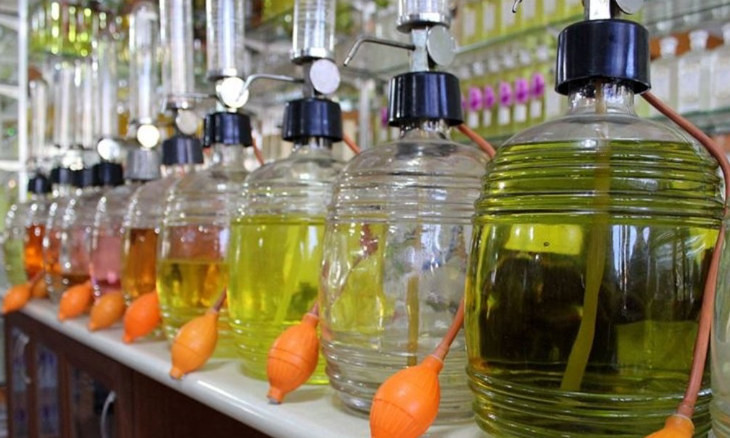People in Turkey stuck between fears of getting infected and sustaining livelihood
As the number of coronavirus cases continue to increase in Turkey, people are stuck between the fear of getting infected by the highly contagious coronavirus (COVID-19) and sustaining their livelihood. While authorities continue to urge people to refrain from going outside, those who are required to work are concerned about the risk to their own health and that of their families. For those who are working from home, the situation has other setbacks - mainly being forced to work more hours and facing psychological pressure.
Eren Topuz / DUVAR
People in Turkey are stuck between the fear of getting infected by the highly contagious coronavirus (COVID-19) and sustaining their livelihood, as authorities call on citizens to refrain from leaving their houses.
After the first cases of coronavirus reached Turkey, both official institutions and citizens alike took precautions one after the next. While the demand for masks and disinfectant supplies has increased, the number of those using public transit has declined while social distancing has become a common practice.
Amid warnings from official institutions calling on people not to leave home unless necessary, many workplaces, stores and offices either stopped operations or switched to a work from home routine. However, those who are still required to go work are concerned about the risk to their own health and that of their families. While many do not want to work in these conditions, they are required to choose between their health and their financial responsibilities.
 Turkey restrains citizens older than 65-year-old from leaving homes
Turkey restrains citizens older than 65-year-old from leaving homesDilan works as an intern at a private law firm, and she is still going into the office. “Together with the calls from authorities telling people to work from home, leaving the house and going to work and thereby putting my family at risk is very stressful,” she said.
Mert, who works as a technician at an automation company in the northwestern province of Kocaeli said that he and his coworkers are working in a risky environment.
“The company exports, and they want the products out before the borders are closed. They put a thermal camera in the entrance, there is hand disinfectant but these precautions are meaningless. If bosses like this in the private sector are left to take these initiatives, the spread [of the virus] cannot be prevented," he said.
"As the 200 people who work here, we have a corona party every day,” Mert added sarcastically.
Erkan, an electric technician, also said that he was working in an unhygienic environment that is conducive to the spread of the virus.
“How healthy can we be in a building site environment? There is dust and dirt everywhere. Also we are working in close quarters together here. We share the same floor and the same rooms. We can't know who is or isn't sick,” Erkan said.
 Turkey’s traditional lemon-scented cologne is top consumer good since coronavirus outbreak
Turkey’s traditional lemon-scented cologne is top consumer good since coronavirus outbreak“We want to stay home too but without our salaries being cut. If we don't leave home we can't ensure that we earn a living, and the state isn't handing out money. If they give us our salary, we'll stay home,” Erkan added.
Selin, who works at an architect's office in the western province of İzmir as a designer, said that if she wasn't having trouble getting by she would not be working in these conditions.
“If I didn't need money this much I would say 'if you don't give me permission I'm leaving this job.' But at the moment, I'm going [to work] due to the fear of being fired. Even if I have to switch to another sector, if I find a project which I could work on from home, I would resign,” Selin said.
Kadir works at a casting firm in Kocaeli and says that the risk continues despite spraying down the factory every day with disinfectant and taking the temperatures of workers at the entrance.
“If it spreads to someone, anyone at work who is not engaging in the proper protection could get everyone sick. I'm on the side of everyone getting a vacation and not leaving home,” Kadir said.
For those who are working from home, the situation has other setbacks - mainly being forced to work more hours and facing psychological pressure.
Caner works as a film editor for an advertising agency, and has been working from home since the pandemic hit Turkey. He says that working conditions have gotten more difficult since he began his home office routine.
“Normally there are flexible working hours, we start at 9 a.m. and when the work given to us is done we leave. It was about an average of 9-10 hours a day. Since we started working from home we are working until midnight. Also at the office we had a one-hour lunch break, now we only get 15 minutes," Caner said.
"On top of that, they call every morning to check if we are awake or not. We are under pressure. It's a ridiculous attitude but in order for them to not think we are lying around at home, in order to break that pressure, we are working much more,” he added.
Meanwhile, Dr. Tuncay Dilci, who works to prevent digital addiction, said that children and adults alike who are stuck at home due to coronavirus need to engage in regular “digital diets.”
“An environment in which digital objects are absent can be arranged. Children or families need to turn off digital devices for three hours and prepare an atmosphere in which they are not seen. Reading activities can be done, organization within families can be coordinated. They can turn this into an opportunity to spend healthy and quality time with their children,” Dilci said.
